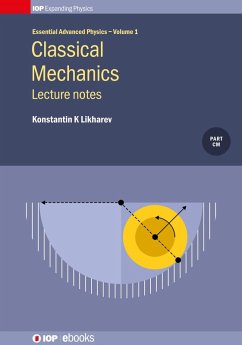
The Forces of Matter (eBook, ePUB)
Versandkostenfrei!
Sofort per Download lieferbar
0,49 €
inkl. MwSt.
Weitere Ausgaben:

PAYBACK Punkte
0 °P sammeln!
In "The Forces of Matter," Michael Faraday presents a groundbreaking exploration of the fundamental interactions governing the physical world. Through a blend of clear prose and insightful illustrations, this work delves into the nature of matter, examining electric and magnetic forces with an unprecedented depth. Faraday's literary style is marked by an accessible yet rigorous approach, reflective of the scientific zeitgeist of the 19th century, when inquiry into the natural world rapidly evolved through experimentation and observation. Michael Faraday (1791-1867), a pioneer of electromagneti...
In "The Forces of Matter," Michael Faraday presents a groundbreaking exploration of the fundamental interactions governing the physical world. Through a blend of clear prose and insightful illustrations, this work delves into the nature of matter, examining electric and magnetic forces with an unprecedented depth. Faraday's literary style is marked by an accessible yet rigorous approach, reflective of the scientific zeitgeist of the 19th century, when inquiry into the natural world rapidly evolved through experimentation and observation. Michael Faraday (1791-1867), a pioneer of electromagnetism and electrochemistry, emerged from humble beginnings to become one of the most influential scientists of his time. His curiosity and inventive spirit were integral to his exploration of these forces, influenced by contemporaneous advancements in physics and chemistry. Faraday's commitment to making science understandable and engaging inspired his choice to write this book in a way that appealed to both scholars and the educated public. "The Forces of Matter" is essential for readers interested in the foundations of modern science, offering profound insights into the principles that govern our universe. Faraday's eloquent explanations not only enlighten but also inspire a deeper appreciation for the interconnectedness of natural phenomena, making this work a compelling read for anyone passionate about the physical sciences.
Dieser Download kann aus rechtlichen Gründen nur mit Rechnungsadresse in A, B, BG, CY, CZ, D, DK, EW, E, FIN, F, GR, H, IRL, I, LT, L, LR, M, NL, PL, P, R, S, SLO, SK ausgeliefert werden.













